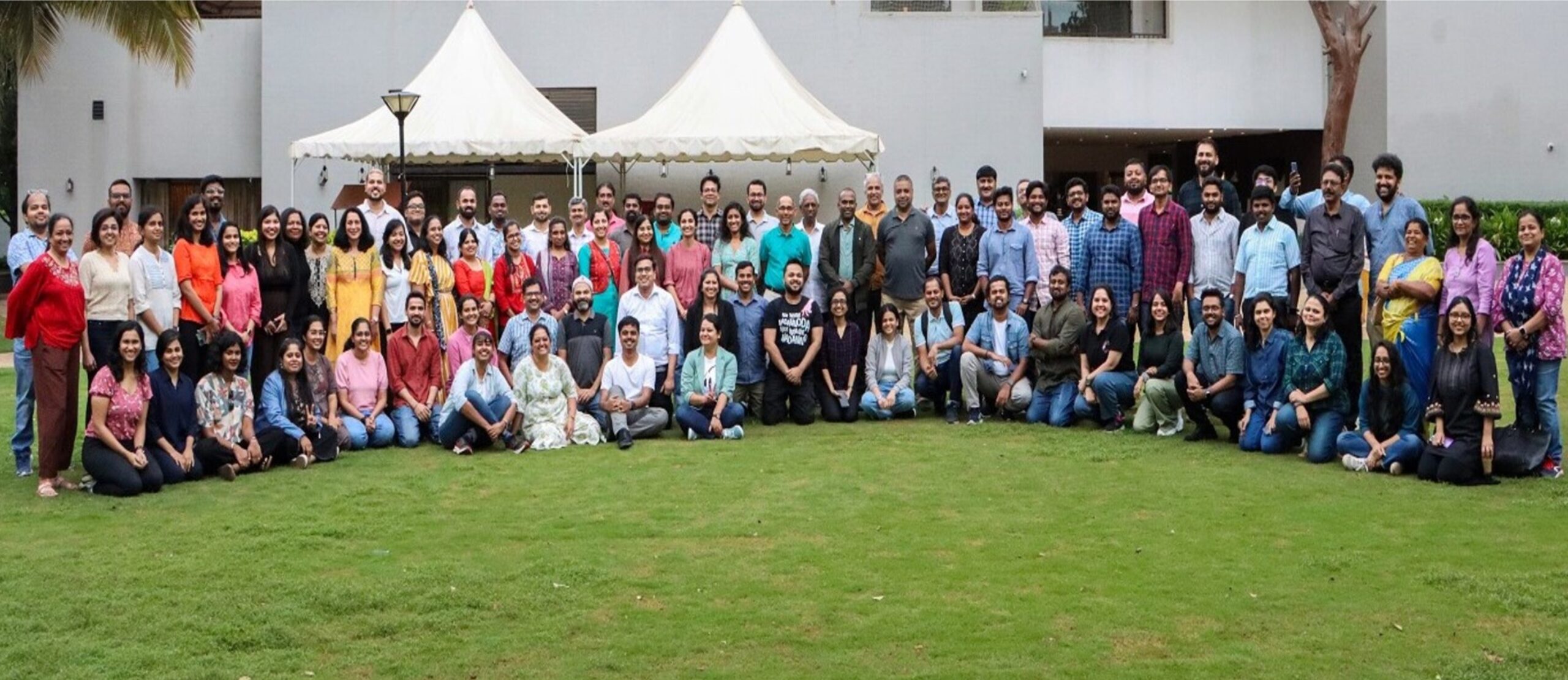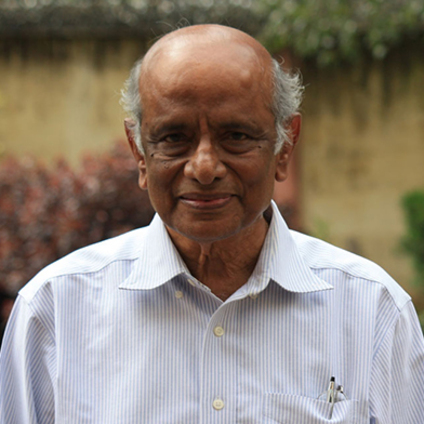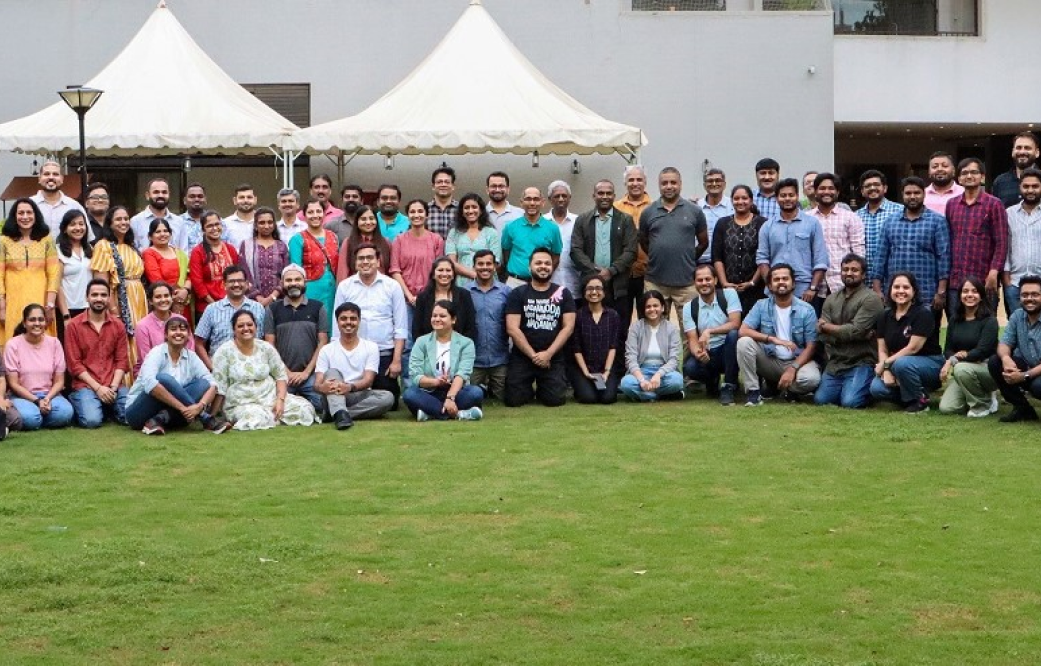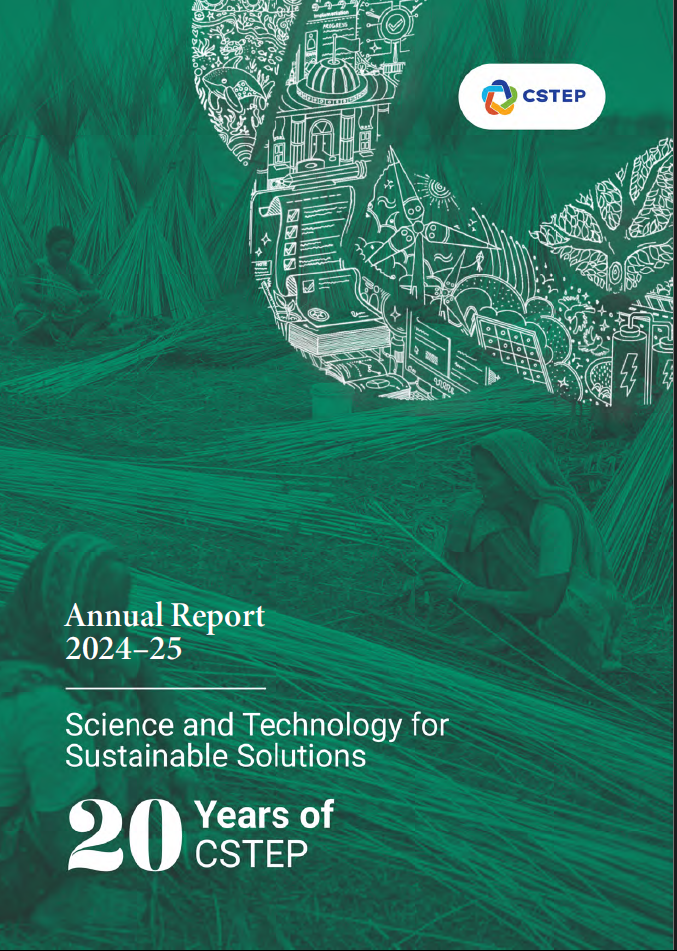The Center for Study of Science, Technology and Policy (CSTEP) is one of India's leading think tanks, with a mission to enrich policymaking with innovative approaches using science and technology for a sustainable, secure, and inclusive society. Our current work is anchored in the grand challenges of our time, namely, Clean Energy Transition, Clean Air for All, and Sustainable and Secure Future for All. Our work focuses on ensuring that our ideas are born out of evidence and implementable at scale. We are continuously exploring new ideas that will play a crucial role in addressing our grand challenges. We are committed to an 'Ecosystem Approach' and to achieving this through multiple partnerships across the ecosystem.

Years of impactful research
States & UTs, driving change across India
Projects shaping policy and practice

CSTEP is one of India's leading think tanks, with a mission to enrich policymaking with innovative approaches using science and technology for a sustainable, secure, and inclusive society.

To become the foremost institution for policy innovation and analysis

The visionary Founder and Chairman of CSTEP, Dr Arunachalam was a trailblazer in bridging science, technology, and policy. A recipient of India’s highest honours, including the Padma Bhushan, Padma Vibhushan, and the Shanti Swarup Bhatnagar Award, he revolutionised India’s defence capabilities, playing a pivotal role in the development of the Light Combat Aircraft (TEJAS) and Integrated Guided Missile Programmes. As the former Secretary of the Department of Defence Research & Development and Director General of DRDO, Dr Arun’s impact on India’s technological advancements is immeasurable. He was also the first Indian Fellow of the Royal Academy of Engineering and a Distinguished Service Professor at Carnegie Mellon University. Through CSTEP, founded in 2005, he worked relentlessly to shape evidence-based policies, leaving a lasting legacy of innovation and leadership in both science and governance.

CSTEP marks 20 years of policy impact, innovation, and scientific research in service of a cleaner, more sustainable India. The number of employees continues to grow as CSTEP expands its efforts in clean energy, air quality, climate resilience, and inclusive development.


CSTEP is registered under Section 25 of the Companies Act, 1956 and is supported by grants from the governments, industry trusts, and domestic and international foundations. Grants and donations made to the organisation are eligible for exemptions u/s 80G of the Income Tax Act, 1961. CSTEP is also registered under the Foreign Contribution (Regulation) Act, 2010.
The following are the regulatory and statutory aspects pertaining to CSTEP:

Explore CSTEP's Annual Report to discover key achievements, impactful projects, and the progress we've made in advancing science, technology, and policy. Our comprehensive reports highlight our contributions to sustainability, innovation, and policy change, offering insights into our ongoing efforts to drive positive global impact.

Explore exciting career opportunities and help drive innovation, sustainability, and policy change for a better future.